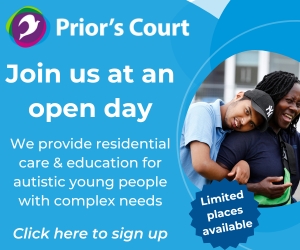How To Help Your Child With Dyslexia
When your child has dyslexia education can seem like an uphill battle. Education and approaches to dyslexia have come a long way in recent years and this should mean your child receives extra help and support at school.There are also plenty of things we as parents can do to help our children to do well in school…
Lead with praise.
Children with dyslexia often need a lot of praise and support. It’s hard to sit in lessons and feel like you’re the only person who doesn’t understand what’s going on and it can make a world of difference to feel that there is someone who supports you and believes in you.
Stay in touch with school.
Make an appointment to meet your child’s new teacher at the beginning of each school year, and stay in touch throughout the year. Ask about their experience of working with dyslexia, and how you can best support them over the course of the year.
Read together.
Read to your child as often as you can, for as long as you can. Encourage them to follow along with their finger under the words; this will help them to associate the written word with the correct pronunciation and hopefully help them to enjoy reading and keep up with the books their friends are reading. You can also encourage your child to take turns with you in reading.
Avoid comparisons.
If your child has brothers or sisters - whether they are dyslexic or not - it’s best to avoid comparing their work. Children with dyslexia are often very sensitive to perceived criticism, perhaps because they already worry about their abilities.
Keep your cool.
Aside from the obvious "reading letters back to front” aspect, children with dyslexia can often struggle with remembering spoken or written instructions, and with remembering where they have left things. This can mean you’re constantly having to remind them about PE kits, homework and any number of other things, and can be very frustrating. It’s important to keep your cool though. Take a deep breath and say it again!
Devise routines and checklists.
People with dyslexia will often find it difficult to organise themselves and their belongings, so routines and checklists can really help. Things like a "leaving the house” checklist or a set "coat-hat-shoes” routine that is the same every time can really help with everyday activities.
Work visually.
People with dyslexia often think in pictures, so if your child needs to remember something, it can help to come up with something for them to visualise rather than just telling them to remember it. For example, if they need to remember their hat at the end of the day, ask them to picture themselves picking it up and putting it on their head. If an older child is revising for a test, drawing pictures of the key points can really help.
Stick to two instructions at a time.
Often, you can ask a child with dyslexia to brush their hair and clean their teeth, and they will manage just fine. If you ask them to brush their hair, clean their teeth and wash their face though, they can lose their train of thought entirely and come back to you ten minutes later having done nothing. To help further, ask them to repeat the two instructions back to you, and to visualise themselves doing it.







